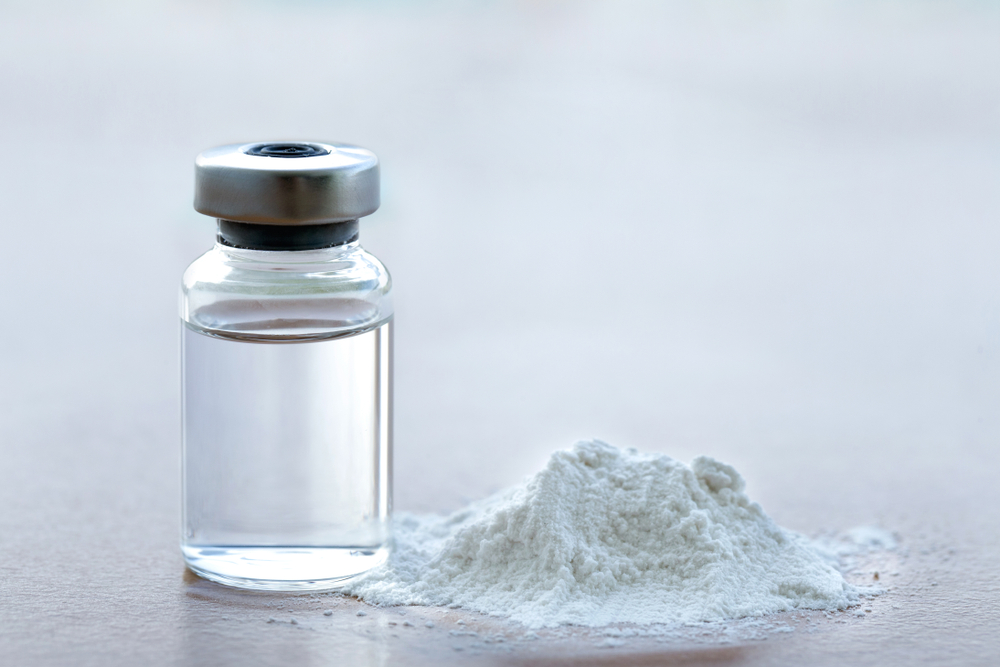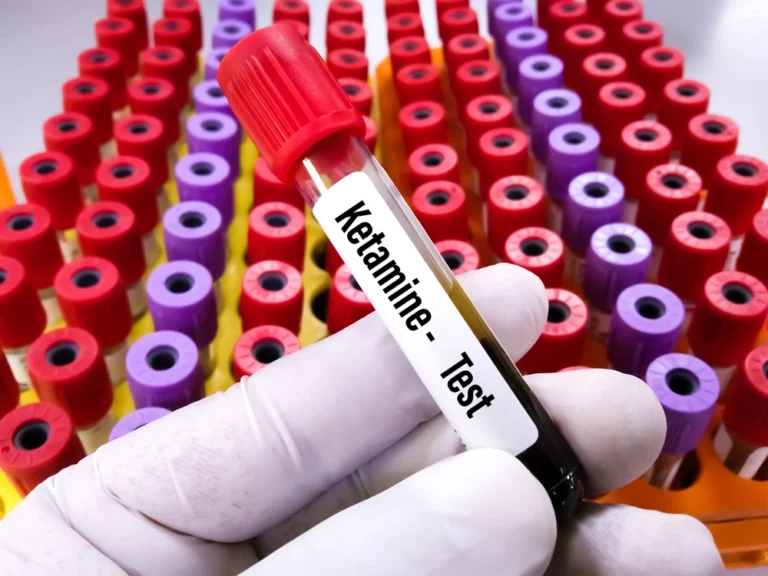Is Ketamine Addictive? Understanding, Treating, and Overcoming Ketamine Addiction
Ketamine, also known by its street name “special K,” has seen a surge in popularity in recent years. The amount of the drug seized by law enforcement has grown by more than 1100% – with 127 pounds seized in 2017 and 1550 pounds in 2022. Unfortunately, much of the ketamine found on the streets is in powder form, making it even more dangerous because it could be laced with other illegal substances.

What is Ketamine?
According to the US Drug Enforcement Administration (DEA), ketamine is a dissociative anesthetic that produces some hallucinogenic effects – meaning it makes users feel detached from their pain and environment. When used under medical supervision, ketamine is considered safe and effective, but when it is used recreationally (or in high doses) it can have dangerous and addictive effects.
The drug itself comes as a clear liquid or in a white or off-white powder form. Liquid ketamine is often injected directly into the body or is mixed with drinks. Powdered ketamine may be snorted or smoked to achieve the desired effect.
Is Ketamine Addictive?
Due to its popularity as a recreational drug, ketamine does have the potential to become addictive. Ketamine affects the brain’s reward system, creating a feeling of euphoria and flooding the brain with dopamine. Dopamine surges reinforce pleasurable behaviors, encouraging repetition of that behavior – even when it is unhealthy.
Like with other recreational drugs, the more it is used, the more the brain adapts and is less responsive to the effects. More and more ketamine is required to achieve the same euphoria and disconnection that was once experienced, increasing the likelihood of addiction.
Symptoms of Ketamine Addiction
Ketamine addiction can be challenging to identify, as its symptoms may not be as apparent as those of other substances. There are several signs and symptoms that can indicate a ketamine addiction – however, someone may not realize that they have become addicted to it. Because ketamine is addictive, identifying these signs and symptoms as early as possible is critical for seeking addiction treatment and having a successful sobriety outcome.
Some symptoms to watch for include:
- Increased Tolerance – Over time, individuals may need higher doses of ketamine to achieve the desired effects, as their tolerance builds up.
- Cravings – Persistent cravings for ketamine are a clear indicator of addiction. These cravings can become overwhelming and lead to compulsive drug-seeking behavior.
- Neglecting Responsibilities – A person struggling with ketamine addiction may begin to neglect their personal, professional, and social responsibilities, as obtaining and using ketamine becomes their primary focus.
- Withdrawal Symptoms – When not using ketamine, individuals may experience withdrawal symptoms such as anxiety, depression, insomnia, and mood swings.
- Failed Attempts to Quit – Repeated unsuccessful attempts to quit or cut down on ketamine use are strong indicators of addiction.
- Social Isolation – Addiction can lead to social isolation as individuals prioritize drug use over their relationships and social activities.
- Continued Use Despite Consequences – Despite facing negative consequences like health issues, legal troubles, or damaged relationships, individuals may continue using ketamine.

Treatment for Ketamine Addiction
Seeking treatment for ketamine addiction is the first step on the journey of sobriety. To be successful, it requires a comprehensive and individualized approach. There are several different treatment options available for ketamine addiction, including:
- Medical Detoxification – The first step in treating ketamine addiction is often medical detoxification. This process helps individuals safely manage withdrawal symptoms and cravings under medical supervision.
- Inpatient or Outpatient Rehabilitation – Depending on the severity of the addiction, individuals may enter either inpatient or outpatient rehabilitation programs. Inpatient programs offer 24/7 support and a structured environment, while outpatient programs provide flexibility for those with milder addiction.
- Therapy and Counseling – Behavioral therapies, such as cognitive behavioral therapy (CBT) and contingency management, can be effective in addressing the psychological aspects of addiction. These therapies help individuals identify triggers, develop coping strategies, and make healthier choices.
- Support Groups – Participation in support groups like Narcotics Anonymous (NA) or Ketamine Anonymous can provide valuable peer support and encouragement during recovery.
- Medication-Assisted Treatment (MAT) – In some cases, medication may be prescribed to help individuals manage cravings and reduce the risk of relapse. Medications like naltrexone may be considered.
- Aftercare and Relapse Prevention – After completing a formal treatment program, individuals should continue with aftercare programs to maintain their recovery. This may involve ongoing therapy, support group participation, and regular check-ins with healthcare professionals.
Ways to Be Successful in Overcoming Ketamine Addiction
Overcoming addiction is never an easy journey, and ketamine addictions are no different. If you have the right support system, go through the right treatment, and continue using the strategies you learn, overcoming ketamine addiction is possible. To help with a successful recovery, consider the following:
- Seek Professional Help – Recognize the importance of seeking professional treatment. The guidance and support of trained addiction specialists can make a significant difference in recovery success. These professionals help you build the skills needed to implement healthy coping mechanisms for when tough situations pop up. They can also provide the aftercare support needed to maintain sobriety long term.
- Develop a Support System – Surround yourself with a strong support system of friends and family who understand your goals and can provide emotional support during difficult times. Your support system can include the ones you turn to when stressors or triggers present themselves.
- Set Realistic Goals – Break your recovery journey into manageable goals. Celebrate small victories and milestones along the way. Share your victories (and your setbacks) with your support system or addiction counselor.
- Avoid Triggers – You may not be able to avoid every trigger or stressor in your life, but being able to identify and avoid certain situations, people, or places that trigger cravings and temptations are a great step to maintaining sobriety. When being in these situations is inevitable, look to your support system or addiction specialist for help navigating through it.
- Practice Self-Care – Prioritize self-care practices such as regular exercise, a balanced diet, and adequate sleep to help improve your overall mental health and recovery journey. You don’t have to spend a lot of time, just making sure you nurture yourself during addiction recovery can help you maintain present in the moment.
Louisville Recovery Center Answers the Question: Is Ketamine Addictive?
Yes, ketamine can be addictive – when it is not used according to the directions of a prescribing physician. Recreational ketamine users are at a higher risk of developing an addiction because they often find their ketamine by illegal means, which is dangerous. The more a person uses ketamine, the more likely they are to develop a tolerance, which can lead to needing more of the drug to achieve the euphoria they once felt. Louisville Recovery Center understands that overcoming ketamine addiction is a process – one that you shouldn’t take alone. Our holistic individualized treatment program can help you gain the necessary skills needed to create healthy coping strategies, learn what triggers your cravings, and find a support system that helps you continue sobriety long after your treatment program ends. Reach out today to learn more about Louisville Recovery Center’s ketamine addiction program.







